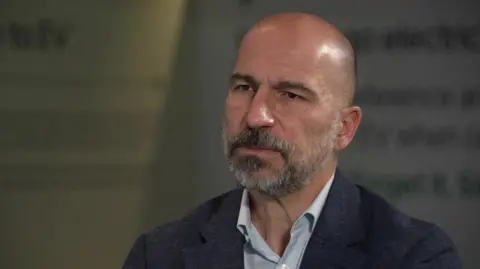Good morning. Today, Laura explains how EU migration rhetoric is hardening ahead of a leaders’ summit next week and our Dublin correspondent previews the Irish Taoiseach’s visit to Washington.
Closing the drawbridge
Brussels is preparing for a showdown on migration at next week’s EU summit, as member states converge on the notion that more drastic curbs are needed — though practicable solutions remain elusive, writes Laura Dubois.
Context: The EU’s reformed asylum rules won’t come into force before 2026, prompting countries to look for interim ways to reduce arrivals. In May, 15 countries asked the European Commission to find “outside the box” solutions.
Germany’s recent move to impose controls along all its borders has sent a signal to other capitals that Berlin’s previous squeamishness when it comes to harsher measures on migration has evaporated, and underlined the broader shift in thinking across the EU.
That’s also reflected in the new European parliament, where anti-immigration and immigration-sceptic parties hold a slim majority.
Germany is among those pushing for an extensive migration discussion at next week’s summit of EU leaders. The draft conclusions, seen by the Financial Times, say that “new ways to prevent and counter irregular migration should be considered, in line with international law”.
According to EU diplomats briefed on the discussions, that is code for paying third countries to take in people who are seeking to reach the EU. But how such agreements could be designed without violating EU and international law is still largely unclear.
According to the diplomats, EU capitals are interpreting the loose phrasing in different ways. Some are for instance keen to replicate Italy’s scheme to process asylum applications on Albanian soil, though Albanian premier Edi Rama has made clear it is a one-off.
Another idea is to send rejected asylum seekers to “return hubs” outside the EU to await deportation. One diplomat said that while several member states were open to this option, “you would have to find a third country which would agree to do this”.
“I think that overall there is consensus to a great extent on exploring new ways, innovative ways [to deal with migration],” another diplomat said. “If you don’t have co-operation of third parties, this thing simply doesn’t work.”
The draft conclusions, which are still subject to change, also call for “intensifying co-operation with countries of origin and countries of transit, through mutually beneficial partnerships”.
The EU already clinched partnerships with Tunisia, Mauritania and Egypt, despite concerns over their effectiveness, and human rights records in those countries. Tunisian President Kais Saied has won a landslide victory after jailing opponents, activists and journalists during his re-election campaign.
“There are limitations, you need to have a step-by-step approach,” the second EU diplomat said. “You need to see what works, what doesn’t work.”
Chart du jour: Hungry
Low taxes, temperate weather and fibre cable access made Ireland an EU pioneer of data centres. But the government’s concern about the sector’s huge energy consumption has prompted a rethink.
Biden’s other Harris
Ireland’s Taoiseach Simon Harris is meeting US President Joe Biden at the White House tomorrow as fears grow for the safety of Irish soldiers on a UN peacekeeping mission in Lebanon, writes Jude Webber.
Context: The US was the first country to recognise Ireland — then called the Irish Free State — in 1924, and outgoing president Biden, who made an emotional trip to Ireland last year, cherishes his Irish roots. The two leaders will mark the centenary of bilateral diplomatic relations.
Historical diplomatic niceties aside, the escalating Middle Eastern conflict will dominate their agenda.
Some 30 Irish soldiers manning a UN border post in southern Lebanon, metres from an Israel Defense Forces deployment, are having to take shelter as Israel bombs Hizbollah. Irish President Michael D Higgins has raged at the threat to the troops, and said Israel’s demand for them to evacuate was “outrageous”.
Ireland and the US have different stances when it comes to the widening war in the Middle East. Ireland is neutral, while the US supplies weapons to Israel.
Dublin has condemned the Hamas attack a year ago that triggered the widening regional conflict and demanded the release of its Israeli hostages. But Harris this year also recognised Palestine as a sovereign state, and insists that “civilians’ lives are of equal value”.
For Harris, the transatlantic trip also offers a chance to burnish his image ahead of a general election widely expected next month.
He is currently favourite to lead the next government — in which case, he could be back in the White House next March for the traditional St Patrick’s Day celebrations, when Ireland flaunts its special friendship with the US.
What to watch today
-
Hungarian Prime Minister Viktor Orbán holds a press conference at the European parliament in Strasbourg.
-
EU finance ministers meet in Luxembourg.
Now read these
Are you enjoying Europe Express? Sign up here to have it delivered straight to your inbox every workday at 7am CET and on Saturdays at noon CET. Do tell us what you think, we love to hear from you: europe.express@ft.com. Keep up with the latest European stories @FT Europe









































































































































You must be logged in to post a comment Login